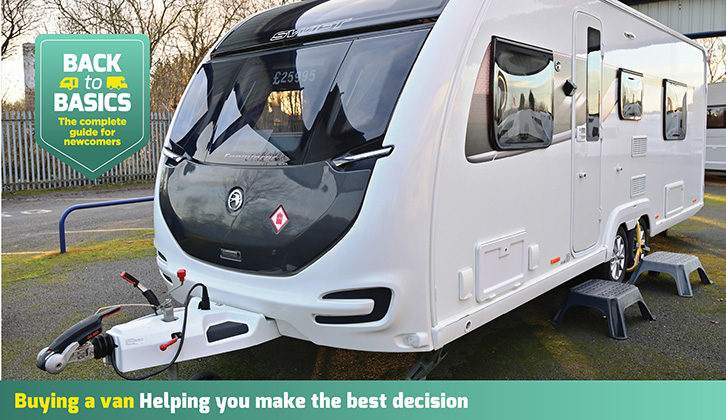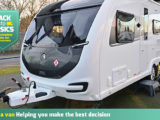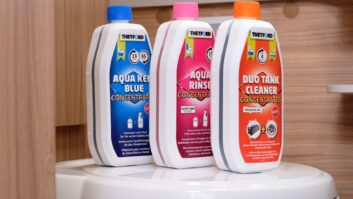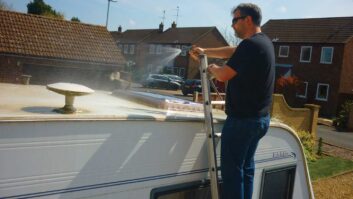When you’re new to the world of caravanning, there can be some confusing terms that are used. To help you get an understanding of them, we’ve compiled a glossary that explains the complicated caravan jargon you may come across.
Kerbweight
As defined by EU Directive 95/48/EC (which still applies), the car or other vehicle’s weight with a 90% full fuel tank, all necessary fluids, 68kg for the driver and 7kg of luggage. This is the figure that is used to calculate a tow car match.
GTW (Gross train weight)
The maximum allowable combined weight of towing vehicle and caravan, as specified by the maker of the towing vehicle.
Maximum towing limit
The greatest weight that a car can legally tow, as specified by its manufacturer.
MiRO (Mass in running order)
The caravan’s weight, with all of its factory-fitted equipment, when it leaves the factory. MiRO replaces the terms ‘ex-works weight’ and ‘unladen weight’.
MTPLM (Maximum technically permissible laden mass)
The maximum weight that the caravan chassis can take, as stated by the chassis manufacturer. On pre-1998 caravans, this figure is referred to as ‘maximum gross weight’ (MGW).
Noseweight
The weight applied to the car’s towball by the caravan. A car also has a towball limit, which is the maximum weight that can be applied to the towball. The lower of these two figures is the maximum you’re permitted (dedicated noseweight scales are available).
Legally, this needs to be 4% or more of the weight of the trailer or at least 25kg, whichever is higher.
Payload
The weight of items you may load into your caravan. It’s found by subtracting the MiRO from the MTPLM.
Snake
The term used to describe a caravan swaying behind the towing vehicle. This is most likely to occur when the caravan has been loaded badly, is going downhill or is travelling too fast.
Stabiliser
A device that suppresses unwanted movement of a caravan. Modern units mount to the towball and use friction to dampen the caravan’s motion.
Hook-up
Cable connection to the mains electrical supply at a campsite. Provides power to mains sockets and appliances.
ESSENTIAL INFORMATION
For full details on matching your car and a caravan, and all the weight info you need to know to tow safely and legally (including the 85% guideline), see www.practicalcaravan.com/towcarmatching
Are you looking for some more buying advice to help you choose the van for you? Then be sure to head to our Back to Basics: Buying a van category!
Our guide to the best used tow cars could help you find the ideal pre-owned towing vehicle to suit your needs.
If you’ve enjoyed reading this article, why not get the latest news, reviews and features delivered direct to your door or inbox every month. Take advantage of our brilliant Practical Caravan magazine SUBSCRIBERS’ OFFER and SIGN UP TO OUR NEWSLETTER for regular weekly updates on all things caravan related.









